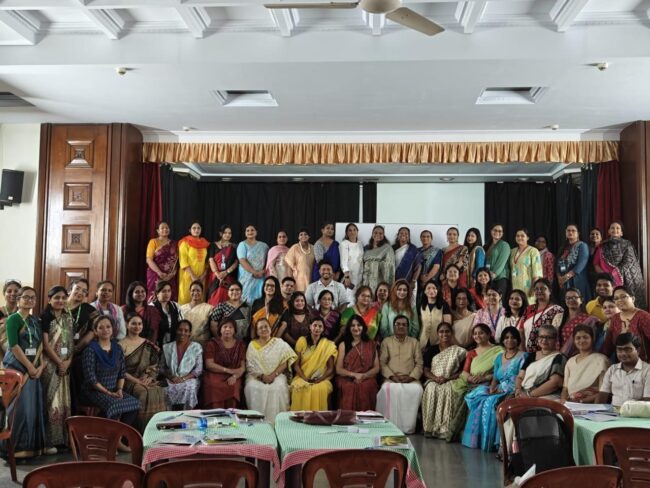The “Life Skills: Train the Trainer Programme” titled “Empower Yourself for a Better Tomorrow” was held at Loreto College, Kolkata, from 16th to 20th June 2025. Organized in collaboration with the Indian Association of Life Skills Education (IALSE), Chennai, this five-day initiative was a pioneering effort aimed at building the capacity of educators to become Master Trainers in life skills education.
The workshop was graced by two eminent resource persons—Dr. A. Radhakrishnan Nair, President of IALSE, and Dr. Gauri Hardikar, Vice President of IALSE. Participants included teachers and faculty from a wide range of educational institutions across Kolkata and West Bengal, including Loreto Day Schools, Carmel Convent Schools, DPS Megacity, The Heritage School, and several others.
Each day’s sessions, held from 9:00 AM to 5:00 PM, featured a mix of conceptual learning, experiential exercises, and collaborative activities, all centered around the ten core life skills such as self-awareness, emotional regulation, empathy, stress management, communication, interpersonal relationships, creative and critical thinking, decision-making, and problem-solving.
The program helped participants develop essential life skills that are vital both in and beyond the classroom. Educators gained enhanced emotional intelligence, the ability to communicate with clarity and purpose, and the resilience to handle emotional challenges.
The training fostered introspection and the capacity to think analytically and make reasoned decisions. A major milestone of the event was the signing of a Memorandum of Understanding (MoU) between Loreto College and IALSE, establishing a framework for future collaboration in life skills education and research.
The workshop also set the foundation for transforming Loreto College into a center for advanced studies in life skills. Overall, the program was a deeply impactful professional development initiative that transcended conventional training by promoting empathy, emotional awareness, social responsibility, and future-readiness among educators—qualities that will positively influence classrooms and communities in the long term.
